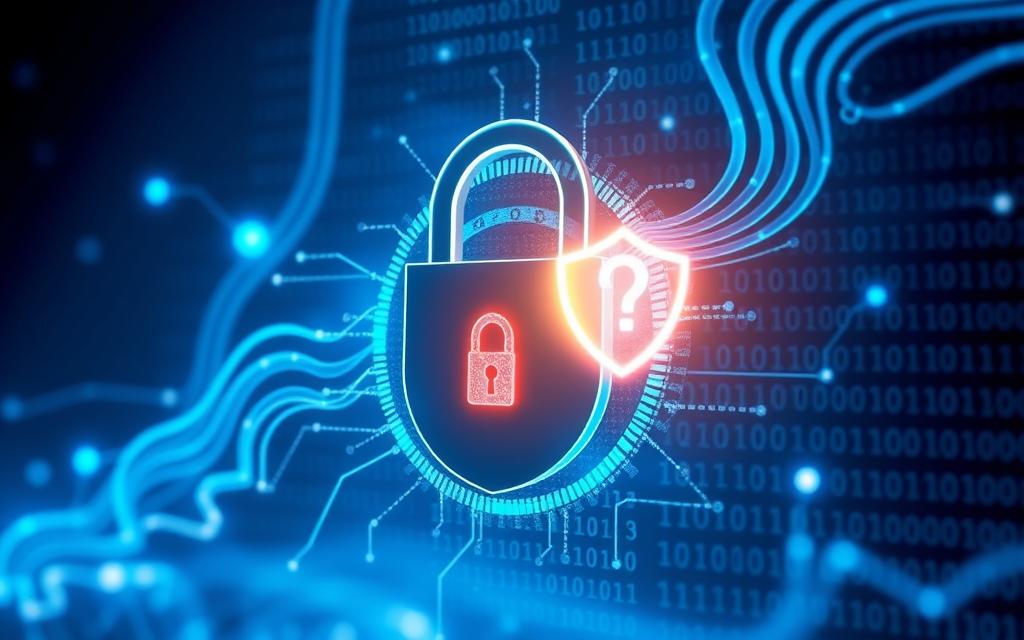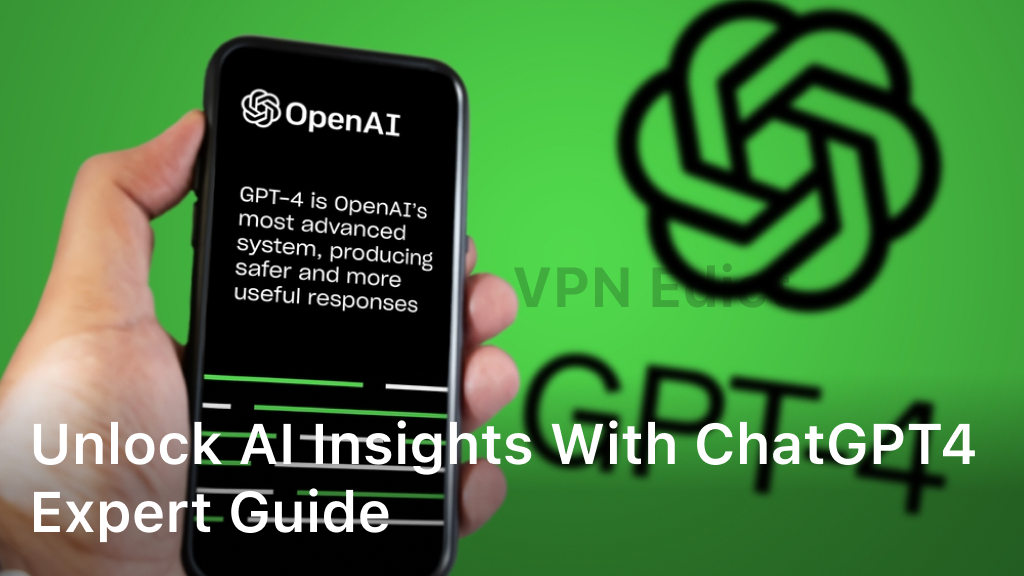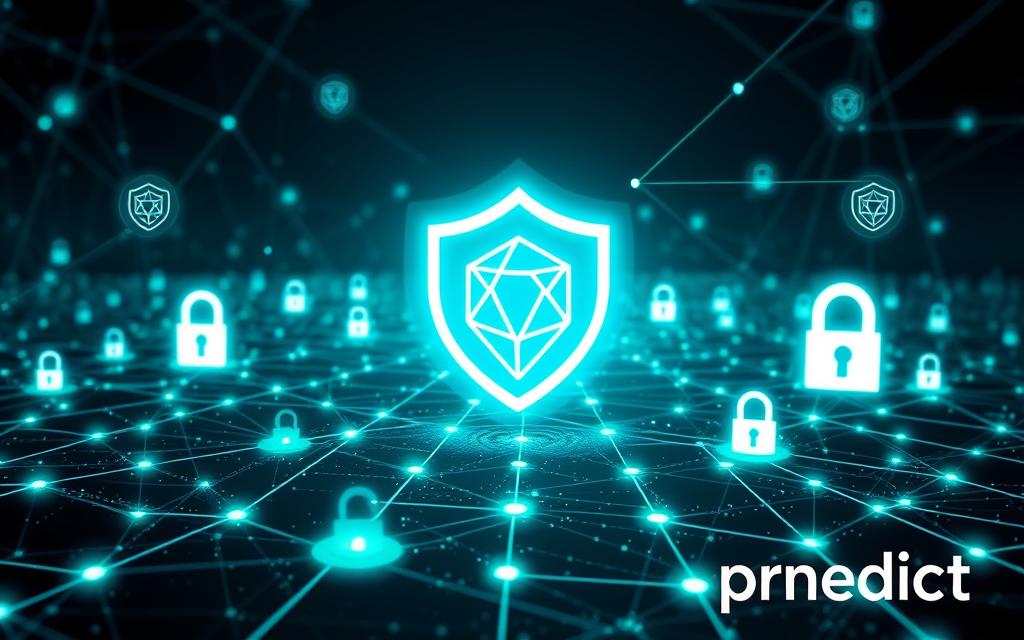How to Set Up a VPN for Data Encryption: Easy Guide
Learn how to set up a VPN for data encryption to secure your sensitive information, protect privacy, and ensure safe online activities from any device.
Ever thought about how safe your personal data is online? In today’s world, keeping your online privacy safe is crucial. Learning how to set up a virtual private network (VPN) is key to protecting your data from unwanted eyes.
Setting up a VPN keeps your online activities private and protects your data from cyber threats. We’ll look at why a VPN is important. It offers many benefits, like better privacy and access to restricted content.
We’ll show you how to set up your VPN step by step. We’ll cover choosing the right service and setting up for maximum security.
With more digital threats around, now is the time to protect your online privacy. Let’s start making your online experience safer and more private.
Introduction to VPNs and Data Encryption
In today’s digital world, keeping our online activities safe is crucial. A Virtual Private Network, or VPN, is key for a secure internet connection. It uses advanced encryption to shield users’ data from cyber threats and unauthorized access.
Learning about VPN basics helps us understand how it works. A VPN makes a secure tunnel between your device and the internet. It hides your IP address. This secure tunnel is made stronger by encryption, making data unreadable to anyone who tries to intercept it.
Encryption is vital for VPNs to work well. VPNs often use protocols like OpenVPN, IKEv2/IPsec, and WireGuard. Each protocol offers different levels of security and performance. They keep data safe and confidential, giving users peace of mind online.

Recent data shows we need secure internet connections more than ever. Data breaches have increased, with millions of records lost each year. This highlights the need for VPNs to protect sensitive information from cyberattacks.
In short, knowing how VPNs and encryption work is key for a secure internet. As we explore more, it’s clear why many are using VPNs for better online security and privacy.
Why We Need VPNs for Data Encryption
In today’s digital world, strong data encryption through VPNs is crucial. We must protect our privacy and ensure we can access content online. These are key concerns in the digital age.
Privacy Concerns
Without VPNs, we face many privacy issues. These include cyber surveillance and the sale of our data without consent. Companies often track our online activities, threatening our privacy. VPNs help by hiding our IP addresses and encrypting our data, reducing these risks.

Security Benefits
VPNs boost our online security by fighting off hackers and making public Wi-Fi safer. With more cyberattacks, our personal and financial data is always at risk. VPNs create a secure tunnel for our data, keeping it safe from harm.
Access to Restricted Content
VPNs also let us access content blocked by location. Many streaming services and websites are only available in certain areas. VPNs help us get past these limits, allowing us to enjoy our favorite shows and access information worldwide.
Choosing the Right VPN Service
Choosing the right VPN service is key for secure and private online activities. We’ll explore important factors to consider when making your choice.
Comparing VPN Providers
It’s crucial to compare VPN providers to find the best one for you. Look at their reputation, reliability, and speed. For example:
- Reputation: A provider with good user reviews and a strong market presence.
- Reliability: They should have consistent uptime and a solid server network.
- Speed: Fast connections are important to avoid slowdowns.
Key Features to Look For
Knowing the essential VPN features helps you get the most from your service. Here are some important ones:
- No-logs policy: This means they don’t keep any activity logs.
- Kill switch: It cuts off your internet if the VPN connection fails to prevent leaks.
- Strong encryption to keep your data safe.
- A wide range of server locations for access to global content.
Cost Considerations
Understanding VPN pricing is vital for finding a service that’s worth the cost. Consider these points:
- Subscription Plans: Look at monthly, yearly, and longer plans. Longer commitments often get discounts.
- Trial Periods: Try services with free trials or money-back guarantees.
- Extra costs for features like dedicated IP addresses or enhanced security.

How to Set Up a VPN for Data Encryption
Setting up a VPN is key to keeping your online activities private and your data safe. Our VPN installation guide will help you through every step.
First, sign up for a trusted VPN service. Look for names like NordVPN, ExpressVPN, or CyberGhost. They offer strong encryption and lots of servers.
- Visit the VPN provider’s website and create an account.
- Pick a plan that meets your needs, focusing on encryption.
- Finish the sign-up and use strong passwords. Mix letters, numbers, and symbols for better security.
Choosing the right VPN protocol is important for security. Top VPNs offer OpenVPN, IKEv2, and L2TP/IPsec. OpenVPN is a good choice for its mix of speed and safety.
| Protocol | Advantages | Disadvantages |
|---|---|---|
| OpenVPN | High security, adaptable to various ports, robust performance | Complex setup for beginners, requires additional software |
| IKEv2 | Fast, stable on mobile devices, supports high-security algorithms | Limited support on some operating systems, could be blocked by firewalls |
| L2TP/IPsec | Easy to configure, built-in to most devices | Moderate speed, susceptible to specific firewalls |
After setting up your VPN, check that it’s working right. This extra security keeps your data and online activities safe from unwanted eyes.
By following these steps, setting up a VPN is easy. With a secure connection, we can surf the web safely, knowing our data is protected.
Installing VPN Software on Different Devices
To get the most out of VPN services, it’s key to know how to set them up on various devices. We’ll show you how to install and configure VPN software on Windows, macOS, iOS, and Android.

Setting Up on Windows
Setting up a VPN on Windows is easy. Just follow these steps:
- First, download the VPN client software from your provider’s website.
- Then, run the installer and follow the instructions on your screen.
- After installation, open the VPN client and log in with your details.
- Next, pick a server location and connect.
Setting Up on macOS
Setting up a VPN on macOS is similar. Here’s what to do:
- Start by visiting your VPN provider’s website and downloading their macOS client.
- Next, open the downloaded file and install it by following the prompts.
- Launch the software and enter your login information.
- Then, choose a server and click to connect.
Setting Up on iOS
To set up a VPN on iOS, follow these steps:
- First, go to the App Store and search for your VPN provider’s app.
- Download and install the app on your device.
- Open the app and log in with your credentials.
- Choose a server location and activate the VPN.
Setting Up on Android
Here’s how to configure a VPN on Android devices:
- Open the Google Play Store and search for your VPN provider’s app.
- Download and install the app.
- Launch the app and sign in with your username and password.
- Select a server and tap to connect.
Configuring VPN Settings for Optimal Security
To get the best security with a VPN, setting it up right is key. We need to tweak the settings to keep our data safe and private. Choosing the right VPN protocol is a big step. It affects both how secure and fast our connection is.
Protocols like OpenVPN, L2TP/IPsec, and WireGuard have different strengths. OpenVPN is very secure and flexible. WireGuard is faster and uses new encryption methods. We should pick one based on what we need most.
It’s also important to use strong encryption. AES-256 is the top choice for encrypting data. We should also keep our VPN settings up to date to stay safe.
Here are some key steps for setting up your VPN:
- Pick the right VPN protocol for you.
- Make sure to use strong encryption (AES-256).
- Always check for updates and security fixes for your VPN.
By following these steps, we can make our VPN as secure as possible. This way, our online activities stay private and safe.
Testing Your VPN Connection
It’s important to make sure your VPN works right. This keeps your online activities private and safe. By doing VPN testing, we check if our connection is secure and our IP is hidden. We also make sure our internet speed is good.
Checking for IP Leaks
First, we check for IP leaks in VPN testing. This means our real IP address stays hidden while using the VPN. We use online tools to find out if our IP is safe. Here’s how to do it:
- Connect to your VPN service.
- Go to a website like IPLeak.net or DNSLeakTest.com.
- Run the test and see if the IP address shown is your VPN’s or your real one.
Ensuring Data Encryption
Then, we check if our data is encrypted. This is key for VPNs to work well. We use tools like Wireshark for this:
- Connect to your VPN service.
- Start a new capture session with Wireshark.
- Visit a secure website and do some things.
- Look at the captured data to see if it’s encrypted and can’t be read.
Testing Connection Speed
Lastly, we test the VPN’s speed. We use tools like Speedtest.net and Fast.com for this. Here’s how to do it:
- First, test your speed without the VPN to know your baseline.
- Then, test with the VPN connected.
- Compare the speeds to see if the VPN slows you down a lot.
Here’s a table showing VPN speeds:
| Without VPN | With VPN |
|---|---|
| Download Speed: 100 Mbps | Download Speed: 85 Mbps |
| Upload Speed: 50 Mbps | Upload Speed: 45 Mbps |
| Latency: 10 ms | Latency: 20 ms |
By testing your VPN often, checking for IP leaks, making sure data is encrypted, and testing speed, you can use your VPN safely and efficiently.
Maintaining Your VPN for Long-Term Use
Keeping your VPN secure is an ongoing task. Regular maintenance is key to keep it running smoothly and safely.
Updating your VPN software is crucial. These updates often include important security fixes. Without them, your VPN could be at risk.
It’s also important to change your VPN password often. A strong, unique password adds extra security. Also, check and adjust your privacy settings regularly to boost your VPN’s protection.
- ⬤ Connection drops: Make sure your internet is stable. If issues continue, try changing your VPN settings.
- ⬤ Slow connection speeds: Try using a different server or protocol in your VPN app.
- ⬤ Compatibility issues: Check if your VPN works with your device’s OS. Update your VPN software if needed.
By being proactive with VPN upkeep and following these tips, we can enjoy a safer and more reliable VPN experience.
Conclusion
We’ve explored how to keep our online activities safe by using a VPN. We started with why VPNs are important and how to pick the best one. Then, we learned how to set it up and keep it running smoothly.
VPN use is more important than ever because of privacy and security concerns. They protect our personal info, keep our internet use safe, and let us access blocked content easily. By following these steps, we can make our online experience secure and private.
It’s important for everyone to use VPNs regularly if they care about privacy and security online. Setting up and using a VPN is easy and has many benefits. Let’s use this technology to keep our data safe and our online presence secure.
Want to secure your data effortlessly? Visit vpnedict.com for a step-by-step guide on how to set up a VPN for data encryption and safeguard your online life!




